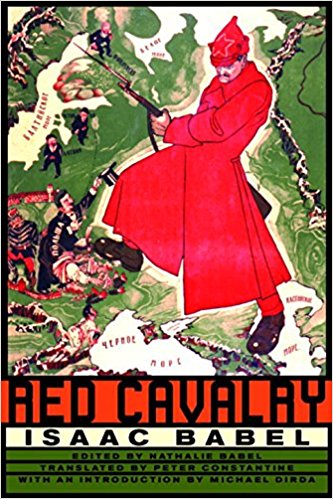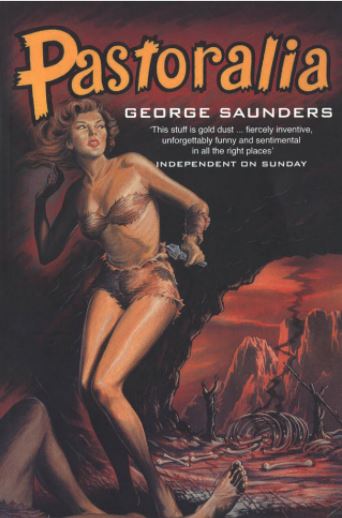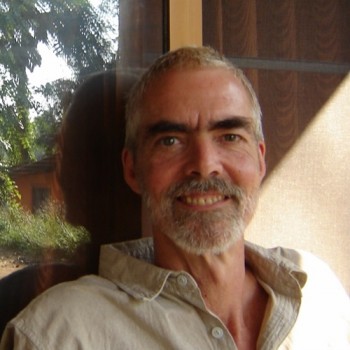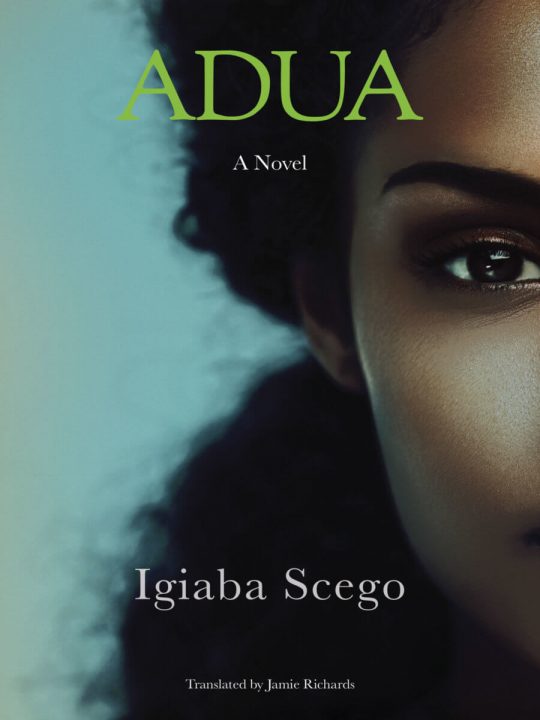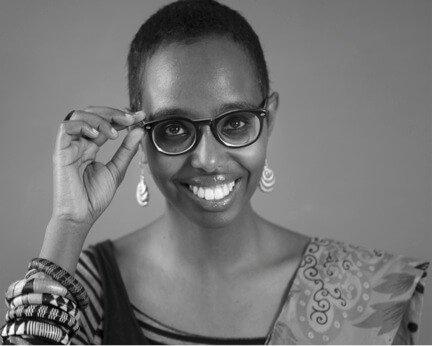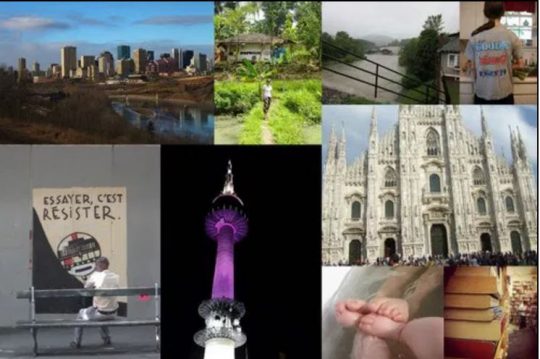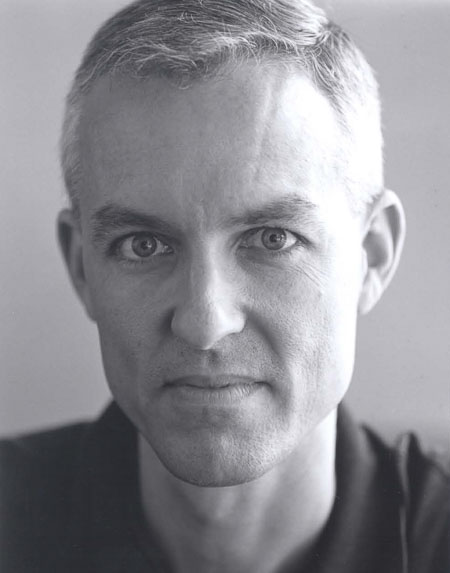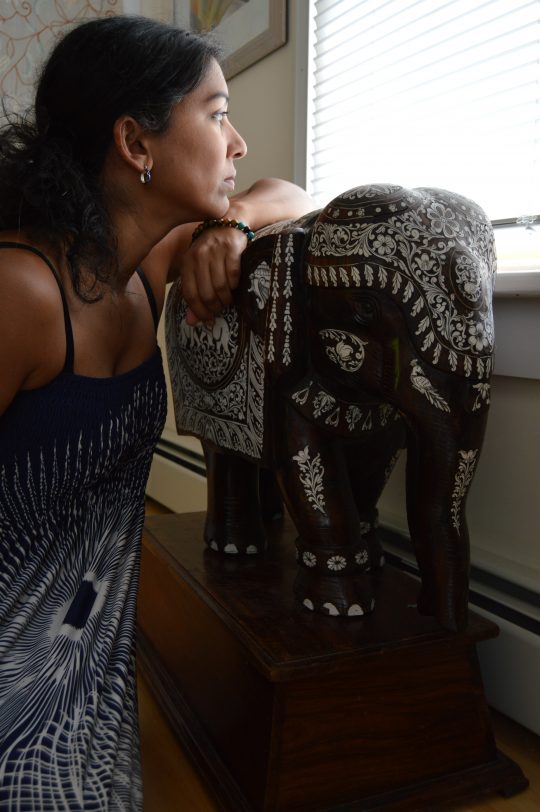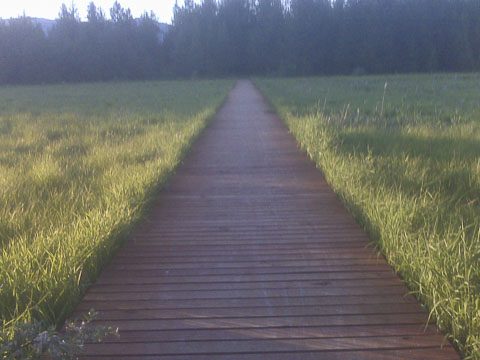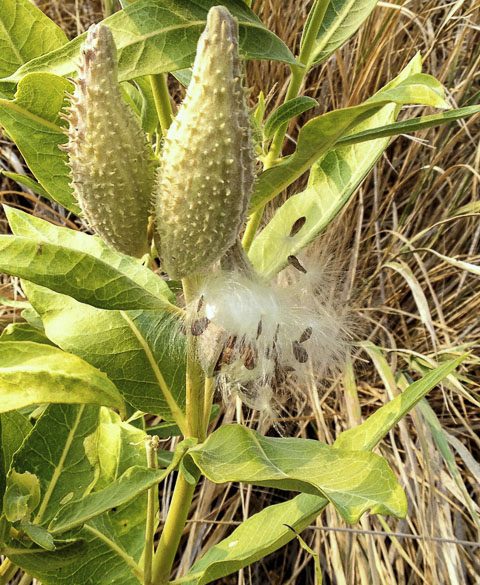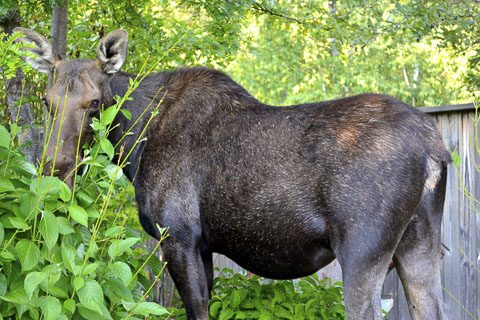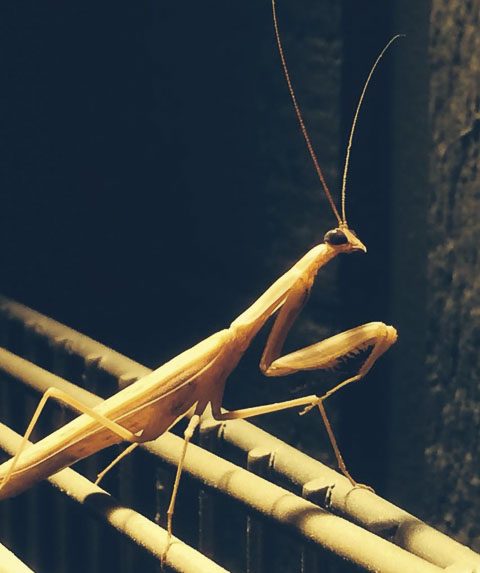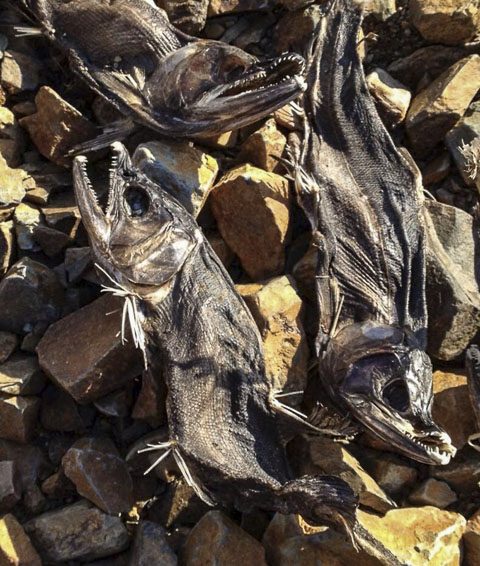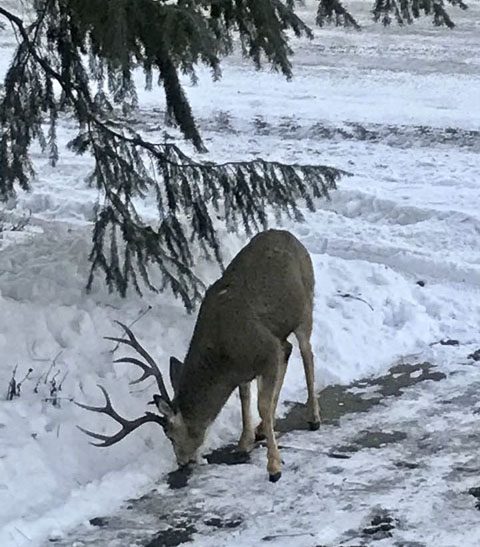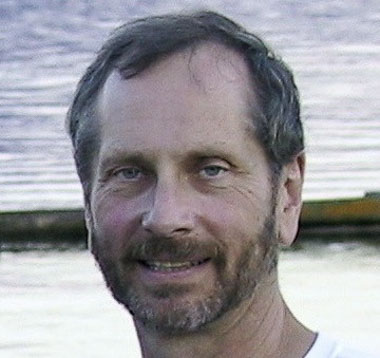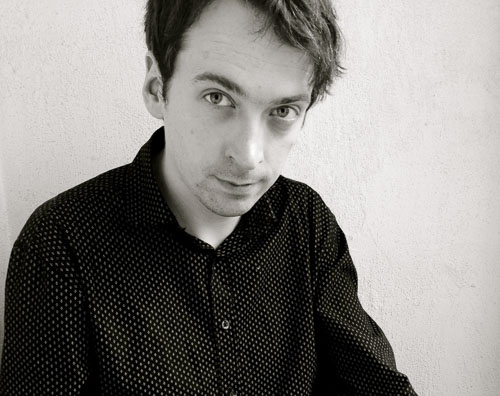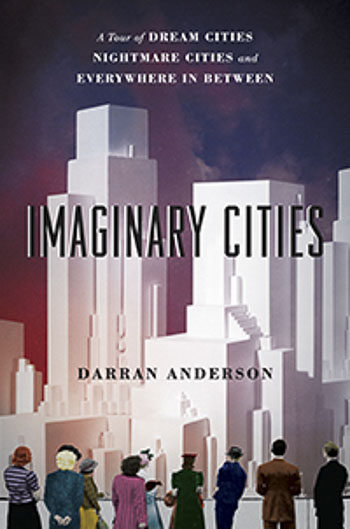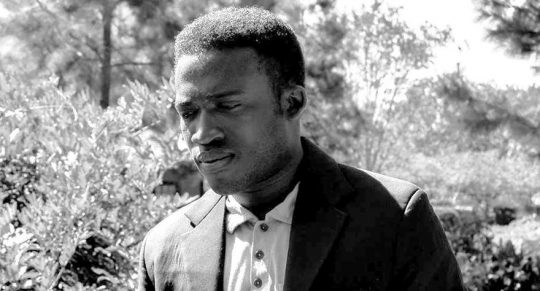
The man with a hunchback missed a few steps and his hunchback was gone. His body was found by the river at the end of the street. They said it was the ritualists who cut off the hunchback, and that they believed it would yield money for them. The river overflowed its bank and washed the worshippers away. They said that the mermaid had taken her revenge. A drug dealer appeared one morning in a canoe. He moved into the empty island in the middle of the river. We called him Rasta Man because of his dreadlocks and the way he spoke in Jamaican patois. Three months later, he disappeared without a trace. A man appeared claiming to be Jesus and traversed the streets with good news and disappeared soon after, too. Uncle Israel moved into one of the apartments beside us. He was one of the weirdest man I ever saw. He had Krishna Consciousness symbols hanging everywhere in his house. He placed a small casket in the living room. I swear he was good man, too. He made friends with a few people in the neighborhood, including my father. Soon after, he disappeared, clean, without a trace. No one knew his whereabouts.
A man chopped off a young boy’s head. He lured him to the back of his hotel and butchered him. When they found the head, it had tears in the eyes. That shit was all over the television, the saddest thing I had ever seen. They said he wanted to sell the organs to hospitals in Saudi Arabia. He rotted away in prison. He awaited trial until death took him. I swear everyone wanted to see him hang. The man lived ten blocks away from us before the event. A brave citizen alerted the people when the severed head was discovered at the back of his hotel. Everyone woke up and decided that enough was enough. An angry mob burned his house. For two weeks, smoke still escaped from charred remains. For two weeks, it smelled like a burning foam at his house. Whenever I walked past it, I felt sad. A month later, a bee hive formed. Three months later, a mad man moved into the house. A year later, the children of the murderer came back to claim their father’s property. Madness ruled these streets. Charred insanity rained here. I swear, the street ran itself for a long time. No government authority was effective here. Well, not just the street, the country ran itself, too.
These streets, these roads, this space, had more stories to tell than the fantasy land of elves and goblins. Here, everything was alert and alive: dogs, ants, chicken, goats, lion, roofs, men, women, children, vigilantes, trees, merchants, sand, sky, air, priests, lovers, demons, sea turtles, and fishes, and me. To survive here, you had to be alert. No slackers.
You could make a few bucks seating down in your house and selling worn out rubbers and bottles for kobo’s and pennies to the men that wondered around with worn out sacks hanging on their backs. Rumor had it that when no one was watching, they could steal little kids, too; turn them into yams and throw them inside their worn out sacks. I swear, I will tell you everything.
It was a road that branched into two. The smaller road we were asked never to take a night. Men and woman poured garbage in it because they were too lazy to walk all the way to the market road to throw away their garbage. A girl got raped here. She wailed until her throat dried up. Before the men could organize themselves into vigilantes, the assailant had already fled. No one dared to confront the rapist alone, cowards. For people that believed in so much about being a brother’s keeper, that said a lot. We all wanted to believe that we were our brother’s keeper, I too. Father was the only one who ever accepted the truth about existence, and us, and brotherhood, and the neighborhood. Each man was for himself. Each man with his own god.
.
Uncle Max always roared that he fought for the people. He boasted about how he could take on all criminals alone, and he never took one down. That man never said anything without shouting. Uncle Max was full of shit, I swear. Uncle Max never cared about anyone but himself in reality. He lived two blocks away from us. Broad shouldered and tall. Terrible, terrible man. He was an awesome liar, too. One day, he disappeared and never to be found again.
Two people were suspected in the rape, one who limped when he walked and another guy I will tell you about. The one who walked with a limp was considered more dangerous than those who walked with two legs. You would find him at carpenter’s shop arguing. Getting into fights. Dodging blows and knocking men down. He was a well-known brute. You dared not call the police against him because he would still get out and come for you.
The other suspect was tall and brutish man called The Jaw Breaker, the only person who dared to knock the limping man down. He was a fine chiseled handsome man who won his respect on the street with his fist. I watched them fight, The Jaw Breaker and the one walked with a limp. I was small. Barely thirteen. On the day of the fight, I was returning from the market with two sacks of vegetables. I dropped them on the ground, close by the security gate, and watched. The Jaw Breaker matched the limping man face to face, blow to blow, until he overran him. The limping man bled like a scene in Spartacus; blood splashed on the wood fence meters away. He forever set a record on the street. There were no rules here. Winner took all, including name. After that fight, The Jaw Breaker took over the street.
.
If you had a daughter, you dared not let her out at night, the night might swallow her. The girl who had her legs sprawled in the moonlight by the little road, learnt the hard way. We, who heard the cry of terror, learnt fear. Fathers heard the cry and felt less manly. They felt the sting in their souls. These are places that God dared not go to. Men were losing face. Men were broken..
I was thirteen when I encountered the Bakassi Boys. They parked by bridge and dragged a thief out of the van. In one swift swing of the cutlass, they slashed his arm away. By the bridge. The arms of a human wriggled and spasmed in pain. The mouth cried out in pain. The man begged. I was mortified. I didn’t know whether to go forward or backward. I couldn’t move. When they slashed the next arm, the blood splashed on me. Three drops of blood on my white clean school uniform. I swear, my heart was pumping blood faster than normal. I feared that the Bakassi Boys would flash their cutlass at me, and it would show red. Legend had it that their cutlass flashes red once you’ve stolen something, anything. I remembered that I had stolen a piece meat from my mother’s pot of soup that morning. I did not know if I was to be next, or if I should cry for the macabre scene before me. For a boy with a soft heart, I was broken.
I watched a man severed from limb to limb, and his blood gushed straight into the river. The river licked its fingers clean, and bees buzzed across the strange river plants and flowers and rotten garbage floating atop. The angry Bakassi Boys found a tire and set the body, or what was left of it, on fire. I swear, he shit on himself before dying. I saw this, and my life was never going to be the same. Ever. It was as if angels had plucked innocence from my eyes and thrown me into the depth of pain. I couldn’t tell if I was ready, but I walked miles back home under the sun. Clutching my friend’s hand and muttering nothing that made sense. I spent the rest of the evening washing the blood off my clothes. I never said a word to anyone, not my mother or father. I understood it all, things disappeared, and so did the blood. I swear, the world seemed upside down, and dark.
.
I was thirteen, but never bookish. Never clutching a copy of Charles Dickens or Thomas Hardy or Achebe to walk with on the street. I swear, here, you never wanted to appear bookish. Here, you never wanted to appear weak. Strength was everything and brute force was a sign of manhood. I read at night.
In the evening, I washed the darkened glass gloves and filled the lantern with kerosene. When the electricity went off, my mother, armed with a match stick in her hand, struck it and lit the lamp. I sat with the lamp in my bedroom and read all the beautiful books in the world. I swear, it was then that I read Charles Dickens, Peter Abrahams, and Achebe. I loved Peter Abrahams most, he mirrored the street the way I wanted it. His character Zuma was part of my existence. I watched Zuma struggle through the unknown.
Mother loved Efuru most. I don’t know why it was so. But before I could read Efuru, my brother tore it in pieces, and I had nothing to read. My brother was quiet and could walk round you the whole day without you knowing. He always disappeared into the street and came back at night. Never in trouble, never brought trouble home. For me, that wasn’t enough to survive here. I observed the street as much it observed me. Most of my friends in school were never bookish, they were mere brutes. Walking weapons. Deadly brutes. That was all I needed on the street and not a copy of Fyodor Dostoyevsky. I swear, I loved Fyodor Dostoyevsky, but in the street, that was real shit, and you needed your head and brute force most.
Not just men roamed the small road, ghosts roamed it, too. A man with fire on his head that my father saw. A lady in white gown that Mama Daniel saw. A forest riding itself in the wind that Mama Ekene saw. They all lived to tell the tale. The carpenters never said anything about what they saw, even though their workshop was by the small road. They only made caskets and sweated under the sunlight and talked about Biafra and how it could rise again from its ashes. They talked about our secret ally, Israel, and how they will help us conquer these uncircumcised northerners. It was there that I first learnt about Ojukwu and his bravery on the battlefield. In our destitute classrooms at school, no teacher dare talked about it. Our tongues dried in want of our own history. These carpenters told us stories while they sawed wood and applied glues at the ends. Even though their versions of history were tainted with acrimony, yet we savored it. The young minds that roamed the street, they all savored it.
We listened to our fathers tell tales of hunting for food during the civil war. Our fathers were broken by the war. These men were never taken care of. Their insides were bruised. They were insane. When they declared “No victor, No vanquished”, no one cared about their insides, about repairing them psychologically. I swear, our fathers were walking time bombs. Most of them bruised their sons in turn. They bruised the government. They bruised the women. They raised the men who were now bruising the street and knocking teeth out.
Father was a brute. Sometimes in his eyes, there were sharp pain and deep kindness. Sometimes, he swung his arms at us. Cursed us. We walked around without hope, hoping for a fix. Hoping that we could be saved. Hoping that someone was coming to save us. When some of us realized that no one was coming, they went mad. Hope was something a man needed to live. It made us wake up. I found hope in the hope that hope was coming. I hoped. Biafra was never to be the same since we lost hope. Biafra had died.
Father said, in that war zone, there was no God. Children with bloated stomachs, ailing. Ailing to death. Ailing for photography and flashes, and media news, and a cry for help. Ailing at a leader that asked them to pray that God would win the war for them. Father never went to church after the war. On Sundays, he sat on the balcony and drank beer and cursed every living thing and told stories. A man whose shadow filled the whole house and whose footsteps could be heard from miles away.
Mother was meek and beautiful. Mother believed that God could help us. God could flush open through the dense cloud and bring down his might, and the beauty of the earth that had once belonged to Adam could belong to us. We could live in paradise again and worship God and sing hallelujah at the call of the last trumpets.
One day, I asked the catechist who the trumpeter would be, and he said it was angel Michael. The same night, as I was walking back home, I saw a baby that had been thrown into the dirt by the market. The sun had dried the body to death. Angel Michael must have blown his trumpet too early and too loud, damn.
We were already in our own beautiful kind of hell. The priest that raped a girl did it by the altar, and God said no word, not that we heard. The priest went on living. The girl went on living. The parents went on defending the priest instead of their daughter and bowed down to him every Sunday. The priest continued to celebrate mass, and the Christian apologists forgave him, they said, “Even though he is a priest, he is still human.” I said: “Fuck that shit” in the dead of the night, when no one was watching me.
Mother ended every prayer like this: “Do not let the evil men ask us ‘where is our God? Where is your God?’”. She believed so much in what she believed. She believed God would vindicate us against all the evils parading on the street, in the air, in the village with malicious uncles seeking our souls. God was there to cut out all the black magic and deliver us. I swear, we prayed for deliverance every day. We read Psalm 35 every night waiting for the angels to come down from heaven. I was thirteen, but I was getting tired of being in an everlasting battle with the devil. I was getting ready to account for myself and blame the supernatural less. I swear, I was. Let the devil be. Honestly, let him be.
The street ended by a river. The river flowed into the world. Our house was a bungalow surrounded by ixora flower. The ixora flower attracted beautiful butterflies in the hamattan. They sucked the life out of the flowers and they withered. But the flowers always grew back again. Beautiful things always grow back again, and evil things come back again, too. They do. The ixora was locked in an endless circle of beauty and death and birth. I watched it every season. I wasn’t small. I wasn’t thirteen anymore. I was looking at the fiery world.
I was eighteen when Donald came to visit us from the university. I was eighteen and the warm wind was filled the sunlight and gently glided over all the fallen leaves towards the river. I was eighteen and strong in my faith and had tasted my first alcohol and vomited on the passage of our house. Father watched me and laughed and said I was becoming a man. I was eighteen, and life seemed more hopeless than hopeful because I had failed the entrance exam to the university. I was eighteen without hope. I swear. I was eighteen when the snake crept of the hole at the backyard and launched it assault at us, and father furiously cut off its head in one swift swing, with a machete. The body danced and danced until it couldn’t move anymore. We buried it. But I learnt that snakes dance before they die.
Donald and I walked into the night to the cyber café. To my surprise, he pulled a gun, his tall body hunched over this shiny death object. He loaded it. He was the gentlest of figures I had ever met in my life. I could not believe that he owned a gun until I saw him with one. He was like one of those sweet movie characters in a suit, wearing a rimmed spectacle and singing love songs. Very soft spoken. Very smooth. Pastoral. Like a man looking after God’s sheep.
.
“Always be on guard,” he said. He looked at me, and put the pistol in his back pocket. We walked down towards the hospital and took the path towards the tarred road. I wasn’t afraid. I wasn’t surprised either. I had always known that Donald was a bad boy. But I never imagined that he had a gun on him all the time he was chatting with my parents, and pretending to be immaculate.
“You always have this on you?” I asked.
“Yes. Never underestimate the strength of your enemies. Never be off guard. Always believe that they are coming for you. Maybe I am being followed,” he said, and smiled. He looked at me like I was just as smart as he was. Like I had a role to play. I was a quiet person. Just as innocent looking as he was.
“Who are they?”
“They. They. People I have hurt that want to hurt me back. People that are after my life. They have tried many times to end me and failed. I am a master of illusion. They can’t find me,” he said and spit angrily. A dog barked. He spit again and continued, “Ninety percent of senses, one percent rugged. I like you because you are smart. You are the future.”
Honestly, I didn’t understand what he meant. I was young and never a cultist nor planning to be one. If mother had the faintest idea that I was even having this conversation, she would have had a heart attack.
We walked that night under the shinning neon street light until Nigerian Power Authority took the light, and the only light that illuminated our path was from moving cars. When we got to the cyber café, it was dark. We paid for two people. I read all about the unknown world out there. About America and Europe. I read about aliens and the universe. I read about universities around the world, until Donald tapped my shoulder and said that he was having a bad feeling. We walked into the night. Donald could smell danger miles away. That was his specialty.
We walked. Two men walked behind us, carefully. Donald slowly removed his pistol and clicked off the safety. The men kept their distance. We kept walking towards the garden and when we entered the green vegetation, they followed us. We hid and watched them. They looked brutal, like they could snap necks with their muscles. Donald aimed and fired. He gripped the pistol against the recoil. He fired again. I don’t know what happened to the men. We walked into the night, and back home, and slept peacefully. When I woke up, Donald was already up laughing with my parents. He was a devil of a man and as smart as a ghost. Very smart. I never said anything. He left in the afternoon and went back to the campus.
“They will all pay,” he said to me before boarding the bus.
I was walking on the road, armed with nothing but my consciousness. That I existed. That I was alive. That was mind boggling in itself. Here, we survived. I didn’t know if I had been a witness to murder or not. I didn’t know if Donald shot to kill or not. All I knew was that rounds were fired and none replied. All I knew was that it was dark, and I ran as fast my feet could carry me. All I knew was that Donald’s escapades never stopped. He became the king of the street and everyone bowed to him. He became of the best known sniper in town and gunned down whomever whenever. Rumors had it that he gunned for politicians, too. He told me a lot about the game. He said I should join the game for protection and because I was smart. He was the first man to ever speak to me about Albert Camus in an insistent way. I swear, he worshiped Camus.
.
I kept on walking on the road, dust and debris flew around me. I kept on walking on the road towards to the cathedral for a grand mass celebrating the Corpus Christi. I kept on walking on the road to seek God’s face, asking him to come and help us all. I kept on walking on the road to St Anthony to pray, to recover all the damned things we’ve lost throughout the years, including my sanity. I kept on walking on the road believing that God was with us, and for us. I prayed for the street. Donald prayed for the street, too. The street prayed for the street.
I was growing and the street was growing. I was home and hadn’t gained admission to college and life was pain. I prayed endlessly before the effigy of Virgin Mary. At some point, I wondered what sort of life it was in which one would pray endlessly for every little thing. We prayed for safe road, for clean water, for healthy food, for rain, for admission to the university, for love, for marriage, for our going and coming back. No one was responsible for any shit, just God and his angels patrolling our condemned streets.
When drugs came to our street, they took John. The rumor was that he smoked something too strong for him to handle. But that evening we watched him rave naked mad on the street and his testicles dangled like a worn out sack hanging on tree in a windy day. His tinny penis was lifeless, as he ran naked down the street, and all the children watched. The men held him down and tied him to a pole and we watched. Fresh mad. He was never to be seen again after they took him away to a Christian madhouse where the pastor cured madness with strokes of cane and colorful candles.
When death came, it performed strange rituals and held my friend strong. She was the strongest girl I ever meet. Her stomach bloated and she fought and fought till the sun went down. She drowned in the fight. I watched her pregnant with nothing and all the medical facilities in this goddamn place had no idea what. They said nothing. She walked into the house of God and all the promises. I watch her dance in with a bloated stomach in the house of the Lord. Death chased her into those blocks with a sickle and sliced her soul away.
The sun was falling in the horizon and the earth was orange in color. Beautiful orange. I held the rail and watched her dance to psalms and violent church songs. I watched the prophetess tell her all the messages from God, that she would be victorious. She died smiling. She died strong. She died with the hope of afterlife and all that promises. I knew, I knew we were alone. I knew she was alone. We all tried to love her to death. But, I swear, she took that journey alone.
I was twenty when we heard the cry in the night and no one dared to go out of the house because the cult boys were raiding the street. When we woke up, the dismembered body of The Jaw Breaker littered the street. Some said his evil had caught up with him and he was no longer the king of the street. Some said it was the Vikings Cult members that cut him to pieces. All we knew was that his liver was cut out and placed on his body as a warning to the Black Axe Confraternity. That morning, the air was frosty and foggy. We walked to the river bank and watched the gore. These streets of sorrows and black nights that wheeled and wheeled into nothing. But it made me. It was me.
I was twenty-four when I survived a bomb attack by Boko Haram by just a few meters. I swear, a few meters. I left the country. I left the street. All those images pulsed in my head playing a series of films, streaming unceasingly. Picture by picture of what life might be like out there. Outside my little town. It became clearer, the brute force of winter and the shy sun. I was twenty-four when it dawned on me that I was black. I was on the streets of Europe examining its sanity and insanity. Whatever I left behind, came with me.
I was twenty-four when black men were being hunted down on the streets of Vienna. I was twenty-four when I realized that the educated lot on the streets of Europe was more dangerous than the uneducated.
I was twenty-four when I walked into a whore house in Europe and met sisters who had lived in the countryside. They swung happily on poles, wearing shiny underwear, and danced to German ululation in a brutal winter. I swear, I nearly shouted hallelujah when their ass-shapes shifted under the disco light.
I was twenty-four when I met Henry and shared hemp under the lights of his master cook kitchen and talked about brotherhood and colorlessness. Before him, I was just a man. I was happy when I walked up that hill with my brothers under the blessing of the full moon. Dramatically, the church bell tolled. I swear, it tolled and I kept walking. The moon appeared three times its size before my eyes and I kept moving. If I had been thirteen, I would have stopped and recited the angelus.
I kept walking. I was twenty-four when I saw a black man being arrested at the train station in Vienna. He was pushed around while he protested in a thick accent. The thick German Polizei weighed him down and weighed him into the car. I swear, his first crime was being black and then other things.
I was twenty-four when whispers passed around about a black man who died while being transported back to Africa. They gagged him to death. All the big media in Austria and Germany said nothing. Amen brother. I swear, amen brother.
I was twenty-four when I refused to perform my life in Berlin, Vienna, Zurich, and all the cities still shinning in their medieval glory. I was twenty-four when I hiked mountains, shared beers and weed with brothers and sisters who wished to be left alone. I watched the fields and beautiful plants, fell in and out of love and drank myself to stupor. Yet nothing happened. Just a song forgotten and the sound of ghosts of people who died on streets that God wouldn’t go to.
I was twenty-four when I saw brothers on the streets of Geneva hustling, passing drugs for survival, with stories on their faces. Looking at them, one would shriek and yawn and listen and drown. The streets of Geneva could be passive and gentle, but these men do not ask to be loved, they wanted to make a living. Just a living.
I was twenty-four when I fell in love again and it seemed like God had finally appeared to me. She was everything hidden on a traveler’s path. Hidden in the rail station. Hidden behind me until I turned back and our eyes met. Her eyes were darker than mine, her skin were darker than mine. When she smiled at me at the train station that night I thought that I had it all. I thought that everything had turned magical in one snowy night. That all my broken places were beginning to repair themselves. Her name was Salisha, and she was on her way to Zurich. We shook hands and smoked on platform two and talked about all the beautiful things Africa had to offer us. And the ugly ones too. I hadn’t smoked for hours, and when I did, it hit me like it was my first day smoking. I had watched her all day at the train, the way she comforted herself and leaned on the coach, I swear that I loved everything about her. When I saw her lighting a cigarette, I walked to her and said it.
“I swear, you are the most beautiful girl I have ever set my eyes on.”
Those eyebrows lifted up like the wings of a tiny angel, and her smile perfectly fitted on her slim face. I swear, the world shrunk at that instance and fell at her feet. I wouldn’t had wasted a moment to ask her to marry me, I swear. And if she had asked me to take her with me, I would have taken her. Her beauty was indescribable, and I spare it by not describing it.
“Where are you from?” I asked.
“Originally from Cameroon,” she said, “but live in Paris now.” She had apparently been traveling for a day on her way to visit her brother in Zurich. Her voice was a natural symphony to my ears.
“And you?” she asked me.
“Nigeria, I am studying here,” I said. “Tu parle francais?”
“Oui…,” she said with a symphonic voice, and laughed. It sounded straight into the heavens and to God himself. Her clothes were light, her leather jacket must have cost a fortune. She wore a dark blue jeans and boots. She was classy, she had style. I had style, too, despite how poor I was. Even though I had cheap jacket from Lidl on, I felt rad inside. My boots came from the mall in the little city I was living in where white boys and girls stared at people like morons, like I dropped from the sky, like they had never seen a black man before.
We spoke a little French and laughed. We talked about school and laughed. We talked about the beauty of Paris and laughed. I told her about my school and laughed. She told me about Zurich and laughed. We laughed like the world was ours, like the platform belonged to us. We watched cartoons on her Ipad and laughed. We watched Nigerian and Cameroon songs and laughed. We watched a girl from Hungary searched by immigration as if she was nothing, we pitied her. We talked about it a little and forgot it. Deep inside of me, I loved her, and laughed.
.
We talked in the train and watched the mountains outrun us. We talked and watched the houses on the mountain and valleys and neon streets and roofs with snow. Whenever the train made a stop, we stood in the beautiful platforms and smoked. We were stuck in the train together for hours. I swear that when I got off, I felt like it had all been just a few minutes. I felt like I needed more time.
“I hope we meet again,” I said.
“We keep in touch, add me on Facebook,” she said.
I found her on Facebook and we became friends. We talked all the time. Almost every day. I continued my journey to Geneva in one piece. She promised to meet me in Geneva. I watched out for her in Geneva the day she promised, but she never came. Her brother had been caught in a drug burst. He would rot in jail. She went back to France and I tried all I could to make life easier for her with words, I swear words are never enough. She disappeared one day from all the social media never to be found again.
The ground ate her. Life ate her. Existence ate her. I swear, it has eaten many people I’ve known and been friends with. My greatest fear is that one day it would eat me. I swear I will bite off its ear before it eats me.
—Chika Onyenezi
Chika Onyenezi is a writer living in United States. Born in Owerri, Nigeria, he holds two degrees, including an MA from European Peace University. His work has appeared, or is forthcoming in The Fanzine, Identity Theory, Litro Magazine, Ninth Letter Online, and elsewhere. He received Honorable Mention in the 2016 Glimmer Train Fiction Open.
.
.
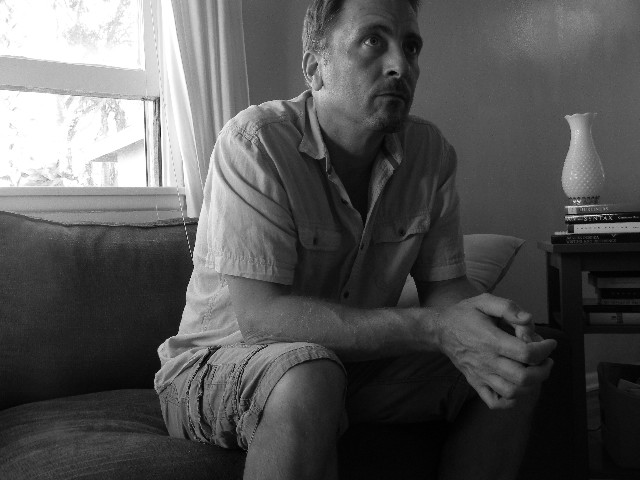 Bruce Stone
Bruce Stone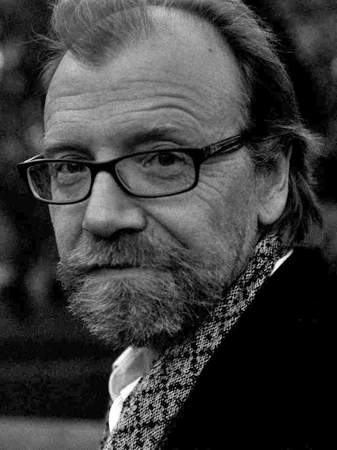
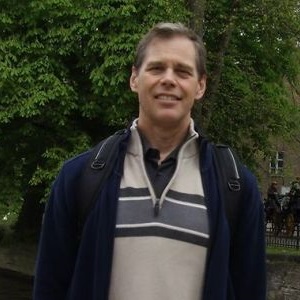 Russell Working
Russell Working
